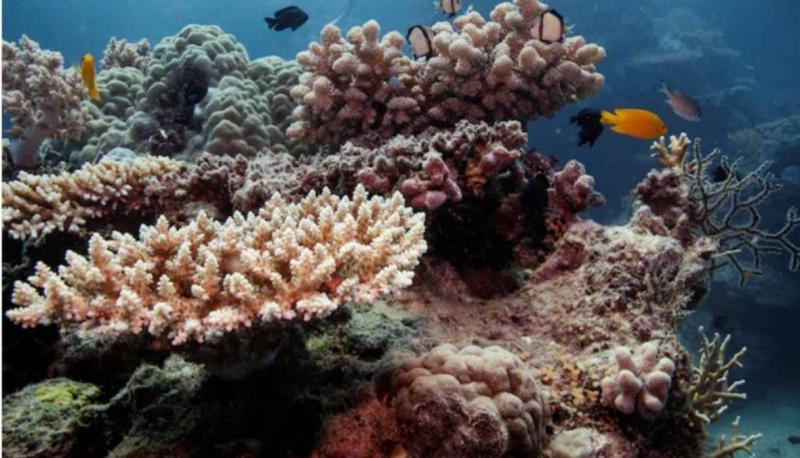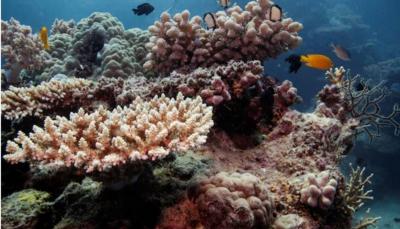Ocean temperatures in the Great Barrier Reef and its surrounding waters in Australia have reached their highest levels in 400 years over the past decade, putting the world's largest coral reef at risk, according to research published today, Thursday. The reef, the largest living ecosystem in the world, extends 2,400 kilometers off the coast of Queensland in northern Australia.
This research is rare in placing the effects of human-induced climate change in a historical context, as other surveys on coral damage typically have a shorter timeframe. Scientists from various Australian universities excavated samples from the coral, and like counting tree rings, analyzed those samples to measure ocean temperatures in summer, reaching back to layers from the year 1618.
Using data from ships and satellites for about 100 years, the research concluded that ocean temperatures, which were stable for hundreds of years, began rising from 1900 as a result of human impact. From 1960 to 2024, researchers noted an average annual increase in temperatures from January to March of 0.12 degrees Celsius (0.22 degrees Fahrenheit) per decade.
Since 2016, the Great Barrier Reef has experienced significant coral bleaching during five summer seasons, a process that causes large portions of the coral to turn white due to thermal stress, making it more vulnerable to mortality. The research showed that these five seasons occurred during five of the six warmest years in the past four centuries.




